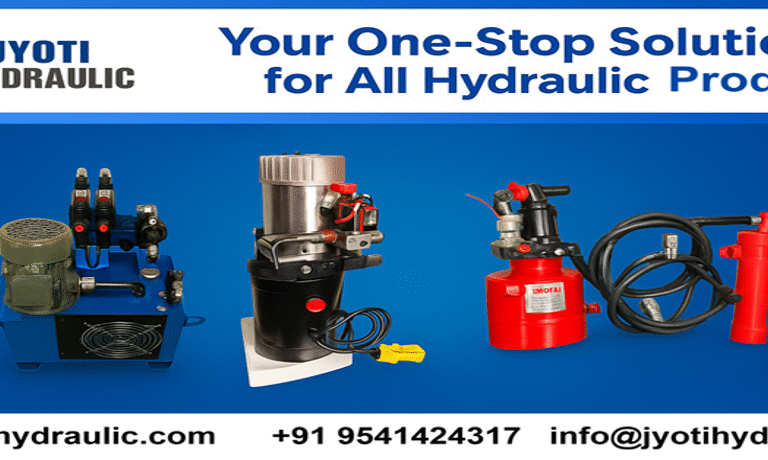Hydraulic Fodder Baling Machine
A Hydraulic Fodder Baling Machine is a specialized agricultural baler designed to compress green fodder, dry fodder, hay, straw, silage, sugarcane leaves, and other farm residues into dense, transport-friendly bales. This machine plays a crucial role in modern agriculture, dairy farming, and livestock management, where efficient fodder storage and long-term preservation are essential. Engineered with a powerful hydraulic compression system, the baler converts loose, bulky fodder into compact blocks that are easy to handle, stack, and transport. Many leading manufacturers, including Jyoti Hydraulic, design these machines to meet the increasing demand for high-density fodder packing, especially for dairy farms, cattle-feed suppliers, rural cooperatives, and fodder-processing units. With the shift towards mechanized farming and scientific fodder storage, a hydraulic baler has become an indispensable asset for improving productivity, reducing wastage, and ensuring continuous availability of animal feed.

Contact With Us
Feel free to write our team anytime
Overview
The working principle of a Hydraulic Fodder Baling Machine centers on the controlled application of hydraulic pressure. Farmers or operators load fodder into the compression chamber either manually or through feeding conveyors. Once filled, the hydraulic ram compresses the fodder uniformly to achieve the desired density. After compaction, the bale is tied manually or using semi-automatic strapping mechanisms with PP rope, twine, or jute strings. The compacted bale retains its shape effectively and protects fodder from external contamination. Many models also include moisture monitoring, adjustable pressure settings, and bale-size customization, ensuring that farmers produce bales that meet the specific needs of local livestock markets or export requirements. Brands like Jyoti Hydraulic focus on delivering machines that maintain the nutritional value of fodder by ensuring gentle yet effective compression without damaging the natural texture or fiber structure.
One of the major advantages of a hydraulic fodder baler is its ability to significantly reduce the volume of fodder, making storage easier and more economical. Dry fodder or hay typically occupies large spaces, and improper storage often leads to spoilage from moisture, pests, or fungal infections. By converting fodder into compact bales, farms can store larger quantities in smaller spaces, protect the material from environmental damage, and ensure year-round feed availability. These bales are easy to transport, enabling farmers to supply fodder to distant markets, support contract farming, and meet bulk demand during drought seasons or peak feeding periods. The machine’s compression capability also improves fodder handling efficiency, reducing manual labor and operational time.
Durability and low maintenance are key features of a Hydraulic Fodder Baling Machine. Built with high-strength steel frames, reinforced compression plates, and industrial-grade hydraulic components, the machine is designed to withstand continuous agricultural use in dusty, uneven, and challenging farm environments. Operators can easily access service points for lubrication, chamber cleaning, hydraulic oil checks, and general inspection. The machine’s hydraulic system is engineered to deliver stable pressure output while keeping energy consumption at an optimized level, making it an economical choice for both small farms and large-scale fodder suppliers. Its user-friendly control layout ensures that even first-time operators can run the machine safely and efficiently.
Safety and hygiene are equally important in fodder baling. Many machines come equipped with emergency-stop controls, overload protection, mechanical interlocks, and secure feeding doors to ensure operator safety. By reducing scattered fodder waste across the farm, the machine helps maintain a cleaner working environment and prevents contamination that may affect animal health. Moreover, compact bales retain moisture balance and protect feed quality, supporting healthier livestock and improved milk or meat production.
From a business perspective, a Hydraulic Fodder Baling Machine offers long-term advantages such as higher profitability, reduced logistics cost, controlled fodder wastage, and improved supply-chain efficiency. It allows producers to meet market demand consistently while maintaining quality standards. For dairy farms, fodder aggregators, and agricultural cooperatives, this machine becomes a strategic investment that enhances operational productivity and supports sustainable farming practices.
Our Blogs
-
How to Calculate Load Capacity for Worm Gear Screw Jacks
Read MoreJyoti Hydraulic is a trusted name in the manufacturing of…
-
Cost-Effectiveness and Efficiency of Worm Gear Screw Jacks in Lifting Systems
Read MoreJyoti Hydraulic has been a trusted engineering name in the…
-
Top Baling Machine Manufacturers in India: Complete Guide for 2025
Read MoreJyoti Hydraulic, a trusted name in India’s hydraulic and industrial…



